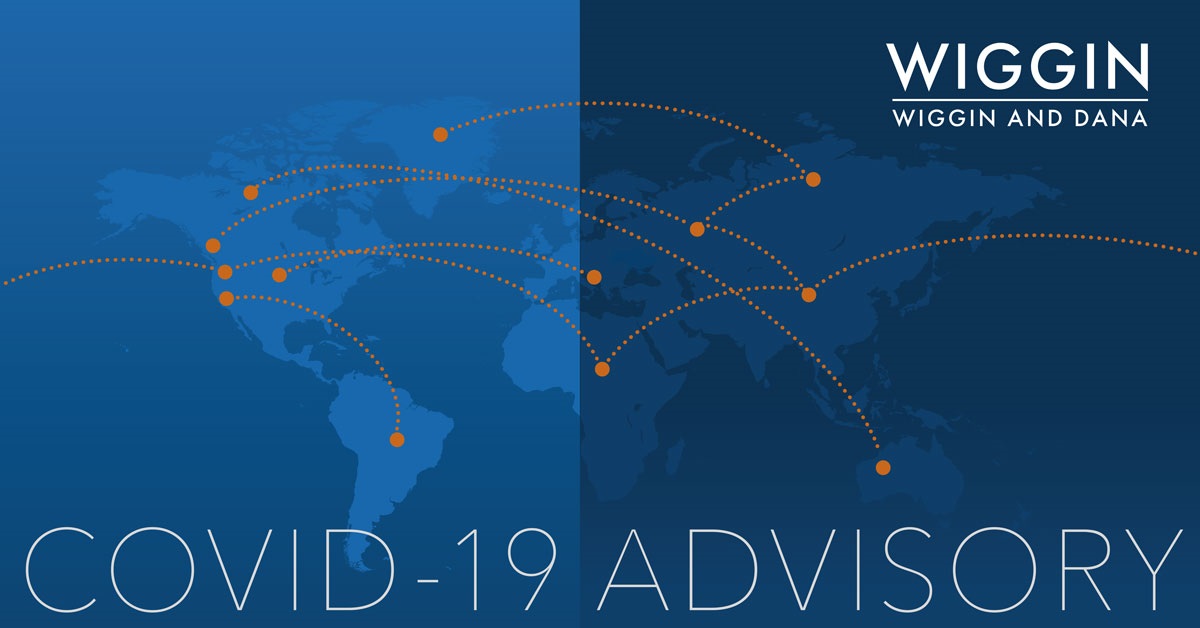COVID-19 Client Resources and Updates

CARES Act Tax Provisions
The Coronavirus Aid, Relief, and Economic Security Act (CARES Act, H.R. 748) (the “CARES Act”) signed into law on March 27 contains a number of tax provisions that will have a significant impact on certain taxpayers. A summary of the most significant tax provisions included in the CARES Act is set forth below:
Individual
Individual recovery rebate/credit – The CARES Act provides that eligible individuals with adjusted gross income (AGI) of no more than $75,000 and joint filers with AGI of no more than $150,000 are allowed an income tax credit for 2020 equal to $1,200 ($2,400 for individuals filing a joint return), plus $500 for each qualifying child (child under 17 years of age). For purposes of determining the credit, “eligible individuals” are any individuals other than non-resident aliens and individuals eligible to be claimed as a dependent by another taxpayer for the tax year. The credit is phased out for individual taxpayers with AGI of more than $99,000 and joint filers with AGI exceeding $198,000. If the individual hasn’t yet filed their 2019 federal income tax return, the Internal Revenue Service will determine the amount of any rebate from their 2018 return. Most individuals won’t have to take any action to receive the rebate – it will be sent to them (either by mail or electronically) automatically.
Relief from tax on retirement plan distributions – The standard 10% additional tax that normally applies to distributions from retirement plans does not apply to coronavirus-related distributions, up to $100,000, so long as the distribution is made between January 1, 2020 and December 31, 2020, and is made to an individual (1) who is diagnosed with the SARS-CoV-2 virus or with the coronavirus disease 2019 (COVID-19) by a test approved by the CDC, (2) whose spouse or dependent is diagnosed with such a virus by such a test, or (3) who experiences adverse financial consequences as a result of (i) being quarantined, furloughed or laid off or having work hours reduced due to such virus, (ii) being unable to work due to lack of child care due to such virus or disease, (iii) closing or reducing hours of a business owned or operated by the individual due to such virus or disease, or (iv) other factors determined by the Treasury Department.
RMD requirement waived for 2020 – The required minimum distribution (RMD) applicable to certain retirement plans and individual retirement accounts has been waived for 2020.
Adjustments to charitable contribution provisions – The CARES Act provides a $300 above the line charitable contribution deduction for certain cash contributions made during 2020 for individuals who do not itemize their deductions and increases the limitation applicable to certain charitable contributions in 2020 for individuals who do itemize.
Businesses
Employee retention credit – The Cares Act provides a new refundable payroll tax credit of 50% for wages paid to certain employees (capped at the first $10,000 in wages paid to such employee) by eligible employers whose operations have been suspended as a result of a government order limiting commerce, travel or group meetings or employers who have experienced a greater than 50% reduction in quarterly receipts, measured on a year-over-year basis. For employers who had an average of 100 or fewer employees in 2019, all wages are eligible, regardless of whether the employee was furloughed. For employers whose average number of employees during 2019 was larger than 100, only the wages of employees who are furloughed or have reduced hours as a result of their employer’s closure or reduced gross receipts are eligible.
Delay of employer payroll taxes – The CARES Act allows employers to defer through the end of 2020 paying the employer’s portion of the Social Security tax that would have been deposited between the date of enactment of the Act and December 31, 2020, allowing payment of 50% of the deferred amount by December 31, 2021, and the remaining 50% by December 31, 2022. Self-employed individuals are allowed a similar deferral on 50% of the Social Security tax portion of their self-employment tax.
Relief from cancellation of debt income – Under the Act, cancellation of debt income arising from the forgiveness of a loan is excluded from taxable income if the loan was received by a borrower on a loan under the Small Business Act, but only to the extent the amount forgiven was used to retain employees, make interest payments on a covered mortgage obligation, make payments on a covered lease obligation or make covered utility payments, and such payments were made during the 8-week period beginning with the loan origination.
Advance refunding of credits for paid sick leave and family leave – Under the Act, small employers (having 500 or fewer employees) whose employees receive paid sick or family leave under the “First Coronavirus Response Act” (P.L. 116-27, 3/18/2020, the FFCRA) and who are entitled to tax credits under the FFCRA may receive an advance on the credits, subject to regulations to be released specifying the requirements for advance of the credits.
Suspension of certain deductible requirements for high-deductible health plans – For plan years beginning on or before December 31, 2021, a health plan will not be disqualified as a high-deductible plan by reason of failing to have a deductible for telehealth and other remote care services.
Suspension of aviation excise taxes – Until December 31, 2020, the Cares Act suspends certain excise taxes on the air transportation of persons or property and suspends the excise tax on kerosene used in commercial aviation.
Modification of NOL provisions – For taxable years beginning before January 1, 2021, the Cares Act temporarily eliminates the provision limiting a corporation’s NOL deduction to 80% of taxable income. In addition, net operating losses arising in the 2018, 2019 and 2020 taxable years may now be carried back five years.
Modification of limitation of losses for noncorporate taxpayers – The CARES Act modifies the “excess business loss” rules by allowing noncorporate taxpayers to deduct such losses during the 2018, 2019 and 2020 tax years (such losses had previously been disallowed for tax years beginning after December 31, 2017 and ending before January 1, 2026).
Modification to limit on deductibility of business interest expense – The CARES Act modifies the existing limitation on the deductibility of business interest expense to 30% of taxable income by temporarily and retroactively increasing the limit from 30% to 50% for the 2019 and 2020 tax years, subject to certain special rules for partnerships.
Bonus depreciation technical correction – The CARES Act provides a retroactive technical correction to the Tax Cut and Jobs Act of 2017 by specifically designating Qualified Investment Property as 15-year property for depreciation purposes and thus eligible for bonus depreciation.
Modification of corporate minimum tax provisions – The CARES Act allows corporations to accelerate the recovery of refundable AMT credits, originally intended to be recoverable over a period of years, now allowing them be fully recoverable by 2019, rather than by 2021.
We will continue to update you as further developments warrant, but if you have any questions or would like to discuss these changes further, please do not hesitate to contact Scott McClure with Wiggin and Dana Tax. To read previous tax advisories, please click here.
****
Visit Wiggin and Dana’s COVID-19 Resource Center here for additional publications and helpful links on multi-disciplinary topics that are relevant during the current COVID-19 global pandemic.
